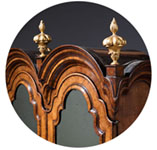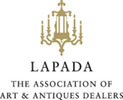17th Century William and Mary Olive Oyster Cushion Mirror
Circa 1690 England
SOLD
Request Information
Follow Us
17th Century William and Mary Olive Oyster Cushion Mirror
Further reading –
Oystering or oyster veneer is a form of veneering, a type of parquetry. This technique requires thin slices of wood branches or roots cut in cross-section, usually from small branches of walnut, olive, kingwood and less commonly laburnum, yew and cocus. The resulting circular or oval pieces of veneer are laid side by side in furniture to produce various decorative patterns.
Because the shape formed resembles an oyster shell the technique acquired the name of ‘oyster veneering’. It is purported that the technique was first developed by English cabinet-makers in the 1660s, immediately after the Restoration of the monarchy, first being used on furniture such as the cocuswood cabinet on stand which bears the cipher of Queen Henrietta Maria (circa 1660) but I believe the technique most likely came from the Huguenot cabinet makers.
Condition
Provenance
Literature
Dimensions
PREVIOUSLY SOLD
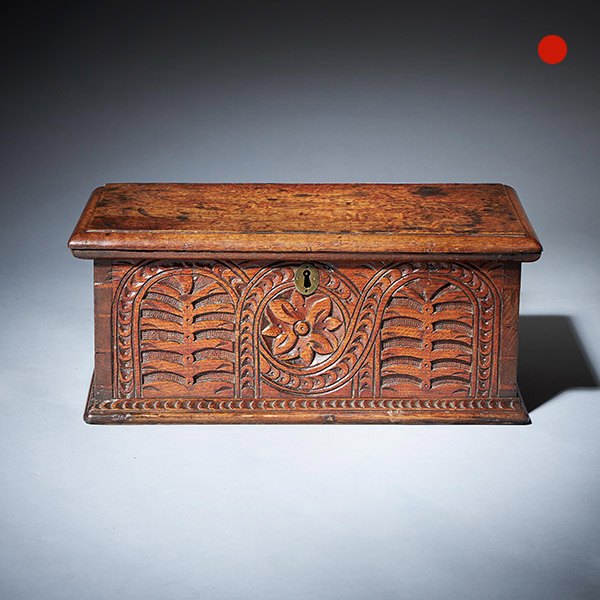
Rare William and Mary 17th Century Carved Oak Deeds Box of Small Proportions
Rare William and Mary 17th Century Carved Oak Deeds Box of Small Proportions SoldFollow UsRare William and Mary 17th Century Carved Oak Deeds Box of Small Proportions A very charming 17th-century oak deeds box with deep carved decoration to...
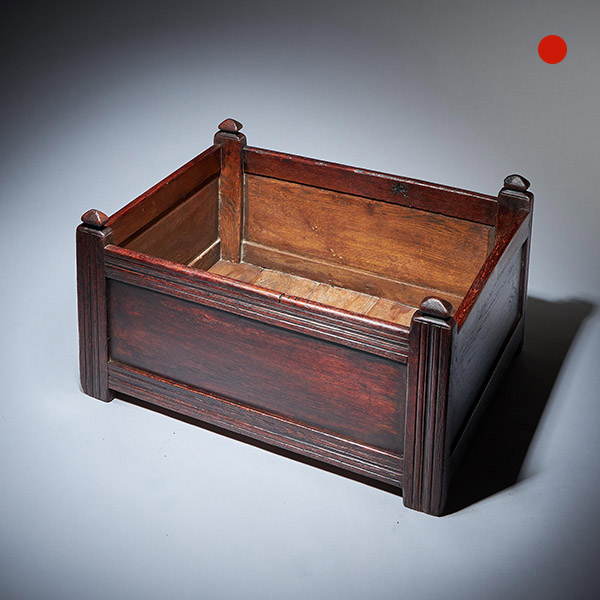
Rare 17th-Century Charles II Oak Log Box, Blanket Box, Low Coffer
Rare 17th-Century Charles II Oak Log Box, Blanket Box, Low Coffer SoldFollow UsRare 17th-Century Charles II Oak Log Box, Blanket Box, Low Coffer Very rare 17th-century solid oak log box from the reign of King Charles II, circa 1660-1690....
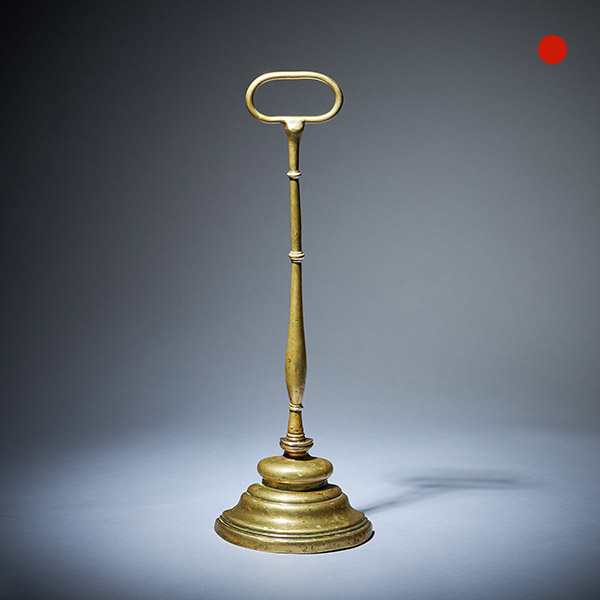
A Rare 18th Century Georgian Brass Doorstop from the Reign of King George III
A Rare 18th Century Georgian Brass Doorstop from the Reign of King George III SoldFollow UsA Rare 18th Century Georgian Brass Doorstop from the Reign of King George III A superb and rare solid brass bell-shaped doorstop of stately proportions...
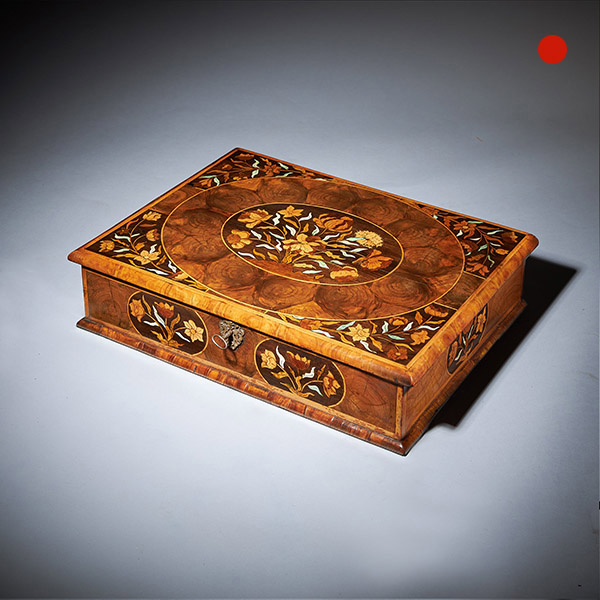
17th Century William and Mary Floral Marquetry Olive Oyster Lace Box Circa 1680
17th Century William and Mary Floral Marquetry Olive Oyster Lace Box, Circa 1680 SoldFollow Us17th Century William and Mary Floral Marquetry Olive Oyster Lace Box, Circa 1680 A fine and rare 17th century William and Mary olive oyster...
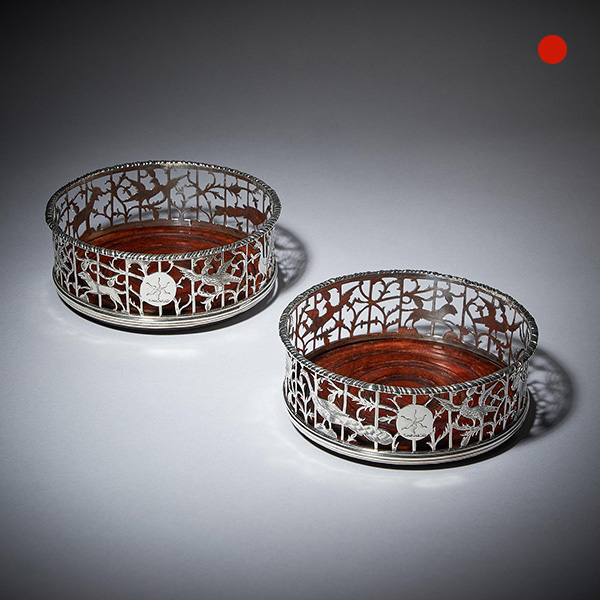
Unique Pair of 18th Century George III Silver Engraved Open Fret Wine Coasters
Unique Pair of 18th Century George III Silver Engraved Open Fret Wine Coasters SoldFollow UsUnique Pair of 18th Century George III Silver Engraved Open Fret Wine Coasters A unique pair of 18th century George III silver engraved open fret wine...

A Pair of 19th Century Late Qing Dynasty Chinese Cloisonné Phoenix Figures
A Pair of 19th Century Late Qing Dynasty Chinese Cloisonné Phoenix Figures SoldFollow UsA Pair of 19th Century Late Qing Dynasty Chinese Cloisonné Phoenix Figures A superb pair of Chinese 19th century late Qing period cloisonné phoenix...

Rare William and Mary 17th Century Carved Oak Deeds Box of Small Proportions
Rare William and Mary 17th Century Carved Oak Deeds Box of Small Proportions SoldFollow UsRare William and Mary 17th Century Carved Oak Deeds Box of Small Proportions A very charming 17th-century oak deeds box with deep carved decoration to...

Rare 17th-Century Charles II Oak Log Box, Blanket Box, Low Coffer
Rare 17th-Century Charles II Oak Log Box, Blanket Box, Low Coffer SoldFollow UsRare 17th-Century Charles II Oak Log Box, Blanket Box, Low Coffer Very rare 17th-century solid oak log box from the reign of King Charles II, circa 1660-1690....

A Rare 18th Century Georgian Brass Doorstop from the Reign of King George III
A Rare 18th Century Georgian Brass Doorstop from the Reign of King George III SoldFollow UsA Rare 18th Century Georgian Brass Doorstop from the Reign of King George III A superb and rare solid brass bell-shaped doorstop of stately proportions...

17th Century William and Mary Floral Marquetry Olive Oyster Lace Box Circa 1680
17th Century William and Mary Floral Marquetry Olive Oyster Lace Box, Circa 1680 SoldFollow Us17th Century William and Mary Floral Marquetry Olive Oyster Lace Box, Circa 1680 A fine and rare 17th century William and Mary olive oyster...

Unique Pair of 18th Century George III Silver Engraved Open Fret Wine Coasters
Unique Pair of 18th Century George III Silver Engraved Open Fret Wine Coasters SoldFollow UsUnique Pair of 18th Century George III Silver Engraved Open Fret Wine Coasters A unique pair of 18th century George III silver engraved open fret wine...

A Pair of 19th Century Late Qing Dynasty Chinese Cloisonné Phoenix Figures
A Pair of 19th Century Late Qing Dynasty Chinese Cloisonné Phoenix Figures SoldFollow UsA Pair of 19th Century Late Qing Dynasty Chinese Cloisonné Phoenix Figures A superb pair of Chinese 19th century late Qing period cloisonné phoenix...
YOU MAY ALSO LIKE
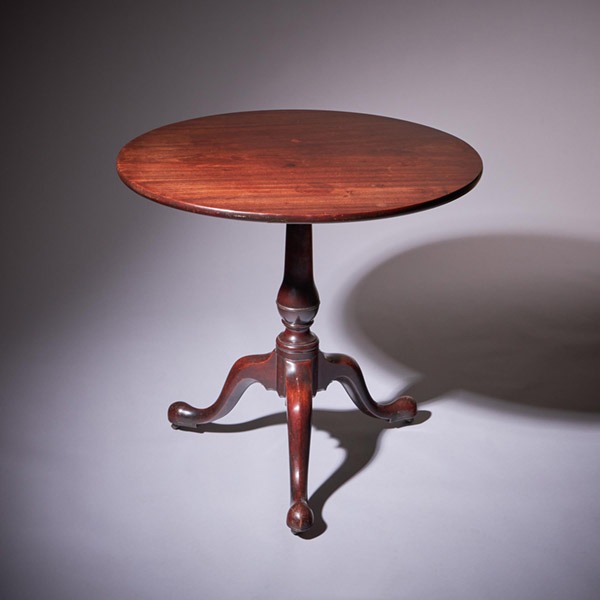
18th Century George III Mahogany Tripod Table, Circa 1770
18th Century George III Mahogany Tripod Table, Circa 1770 £2,200Follow Us18th Century George III...
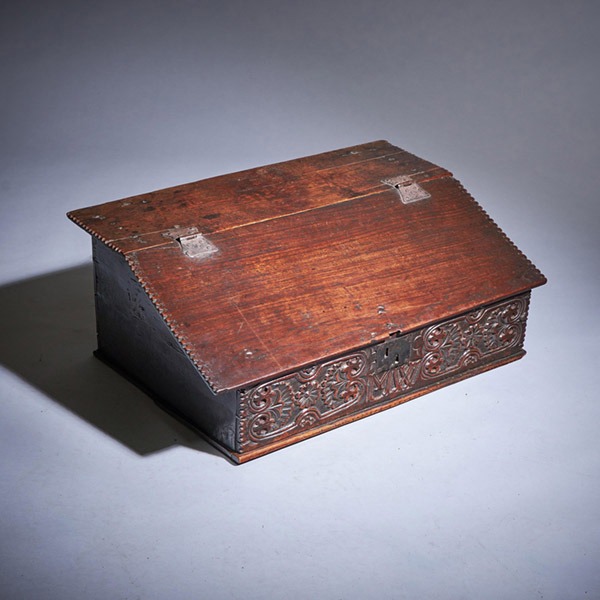
17th Century Charles II Carved Oak Writing Box or Desk Box circa 1670 England
17th Century Charles II Carved Oak Writing Box or Desk Box circa 1670, England £2,250Follow Us17th...
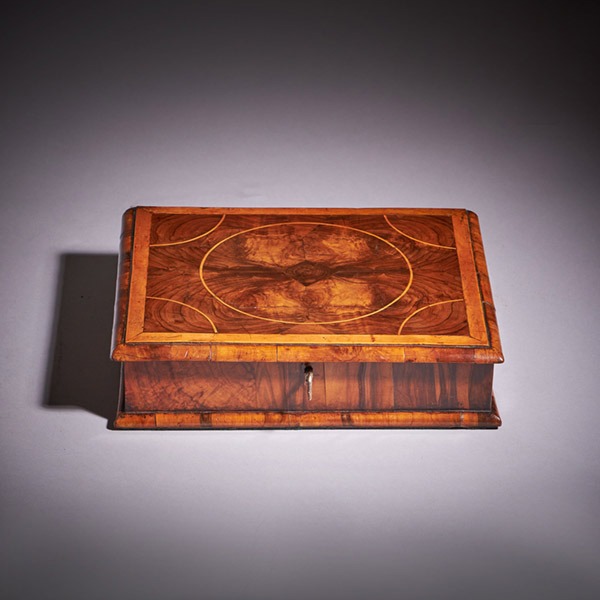
Fine William and Mary 17th Century Olive Oyster Lace Box
Fine William and Mary 17th Century Olive Oyster Lace Box £2,600Follow UsFine William and Mary 17th...
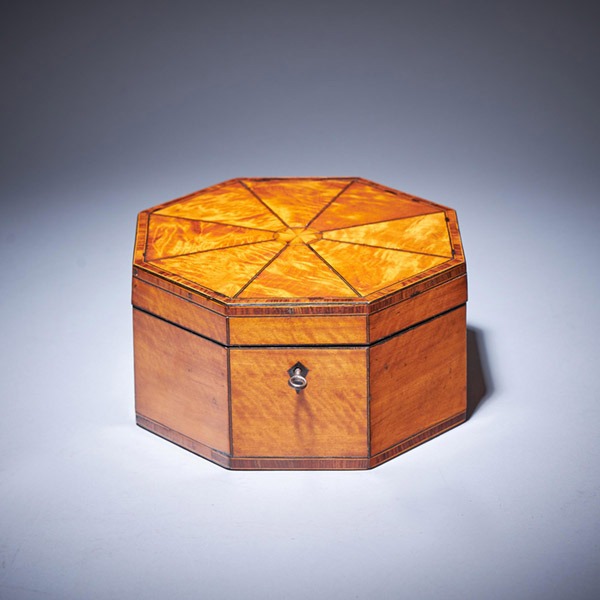
A Fine and Rare George III Octagonal Figured Satinwood Box, C.1790
A Fine and Rare George III Octagonal Figured Satinwood Box, C.1790 £2,200Follow UsA Fine and Rare...
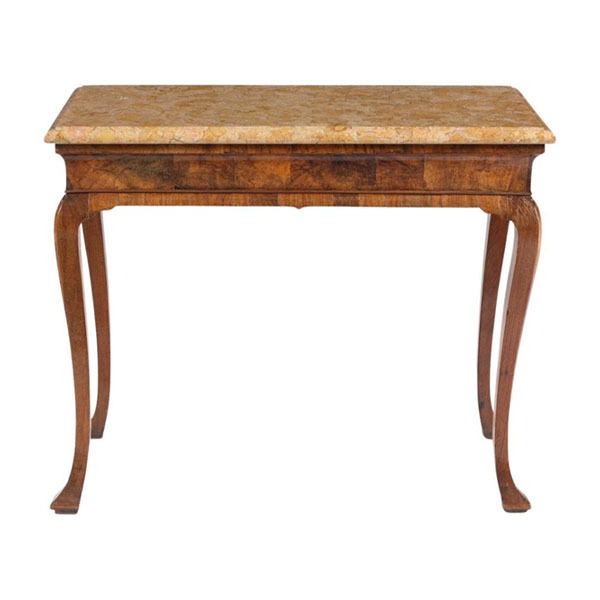
18th Century George II Figured Walnut Console Table, Sienna Brocatelle Marble
18th Century George II Figured Walnut Console Table, Sienna Brocatelle Marble £12,500Follow Us18th...
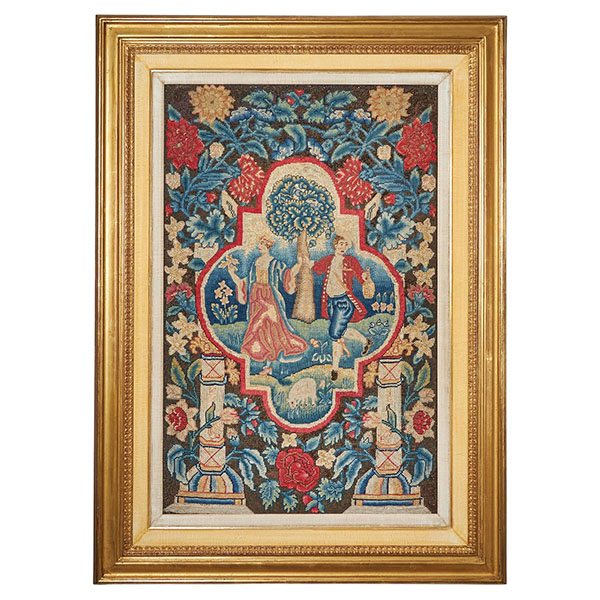
A Rare and Vibrant Framed 18th Century George II Needlework Picture, Circa 1730
A Rare and Vibrant Framed 18th Century George II Needlework Picture, Circa 1730 £16,000Follow UsA Rare and Vibrant Framed 18th Century George II Needlework Picture, Circa 1730 A rare and vibrant early 18th century George II pictorial...

18th Century George III Mahogany Tripod Table, Circa 1770
18th Century George III Mahogany Tripod Table, Circa 1770 £2,200Follow Us18th Century George III...

17th Century Charles II Carved Oak Writing Box or Desk Box circa 1670 England
17th Century Charles II Carved Oak Writing Box or Desk Box circa 1670, England £2,250Follow Us17th...

Fine William and Mary 17th Century Olive Oyster Lace Box
Fine William and Mary 17th Century Olive Oyster Lace Box £2,600Follow UsFine William and Mary 17th...

A Fine and Rare George III Octagonal Figured Satinwood Box, C.1790
A Fine and Rare George III Octagonal Figured Satinwood Box, C.1790 £2,200Follow UsA Fine and Rare...

18th Century George II Figured Walnut Console Table, Sienna Brocatelle Marble
18th Century George II Figured Walnut Console Table, Sienna Brocatelle Marble £12,500Follow Us18th...

A Rare and Vibrant Framed 18th Century George II Needlework Picture, Circa 1730
A Rare and Vibrant Framed 18th Century George II Needlework Picture, Circa 1730 £16,000Follow UsA Rare and Vibrant Framed 18th Century George II Needlework Picture, Circa 1730 A rare and vibrant early 18th century George II pictorial...
